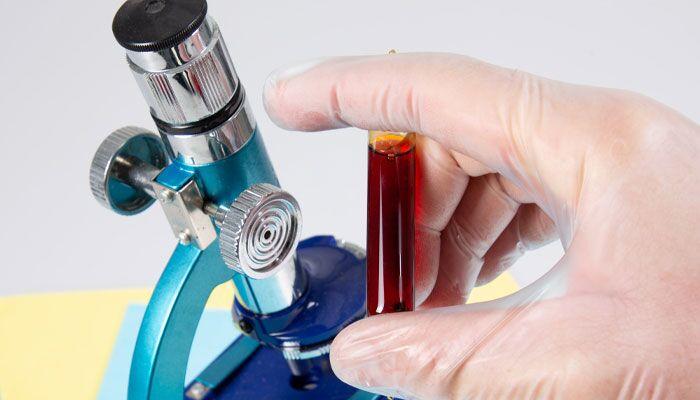
Genetics of Monogenic Diabetes

Monogenic diabetes is a rare condition which is caused due to mutations in a single gene. About 2-5 % of patients with diabetes mellitus suffer from either Maturity Onset Diabetes of The Young (MODY) or Neonatal diabetes. Monogenic diabetes is usually inherited via autosomal dominant trait transmission. At least 14 genetic subtypes of MODY have been identified so far. Let’s learn more about how a single mutation results in diabetes.
Genetic Testing Vital for the Classification of Monogenic Diabetes
Genome-wide association studies (GWAS) involve testing hundreds of thousands of common genetic variants in large numbers of cases and control groups to assess for differences in allele frequency and hence identify genotype-phenotype associations. Large GWAS studies have identified numerous genetic variants associated with diabetes. Genetic testing is beneficial for the diagnosis of certain forms of diabetes caused by defects in a single gene for example HNF1A mutations for MODY, and KCNJ11 mutations for neonatal diabetes. Patients with MODY are often misdiagnosed as having either Type 1 diabetes (T1D) or Type 2 diabetes (T2D) because of their similar genotypic features and unawareness of the disease. Misdiagnosis of the type of diabetes poses significant risks, leading to inappropriate insulin or sulfonylurea treatment and unnecessary complications.
Ways Genetic Testing Differentiates MODY from other Diabetic Subtypes
Identifying the genes of interest to identify the genetic variants causing monogenic diabetes is part of determining MODY. Below are some ways that genetic testing helps differentiate MODY from other diabetic subtypes.
Targeted next-generation DNA sequencing: Using biomarkers for the stratification of patients is the most effective genetic testing method for identifying monogenic diabetes. Some of the biomarkers for differentiating MODY from other diabetic subtypes include hsCRP (High-sensitivity C-reactive protein) – as a marker of MODY3 (HNF1α), Fucosylated plasma glycans-GP30 – as a marker of HNF1α – MODY3, C-peptide and Sulfonylurea, Apolipoprotein M (ApoM) and HDL (High-Density Lipo-proteins). Genetic testing for neonatal diabetes involves testing for the ABCC8 and KCNJ11 genes using a targeted next-generation sequencing assay.
Comprehensive Monogenic diabetes Panel: A multi-gene panel is a type of genetic testing that looks for mutations in multiple genes at once.
The monogenic diabetes panel consists of over 60 nuclear genes and also includes mitochondrial mutations (m.3243A>G, m.8296A>G, m.14709T>C).
Genetic testing for monogenic diabetes (R141 and R143) should be carried out only in patients having diabetes established using laboratory blood glucose or HbA1c unless met with the criteria for Glucokinase-related fasting hyperglycaemia.
Application of Genomics in Diabetes Classification
Genomics could play a role in discriminating between type 1 diabetes (T1D) and type 2 diabetes (T2D). The epidemic of obesity makes it difficult to distinguish between T1D and T2D. A cross-sectional study of T1D and T2D evaluated genetic risk scores (GRS) that included high-risk HLA genotypes and 31 genetic loci for T2D. It was found that GRS improved the discrimination between strictly defined T1D and T2D in addition to clinical factors and autoimmune antibody tests, and has also helped to predict patients requiring insulin treatment within 3 years of diagnosis. Therefore, genomics plays a vital role in risk prediction and to differentiate T1D and T2D.
Large Genome-Wide Association Studies (GWAS) have identified at least 90 genetic loci associated with T2D. For example, the common variant from these GWAS studies associated with T2D was found to be an intronic variant in TCF7L2 (rs7903146). Genetic Risk Scores (GRS) combine information from various genetic variants and assess the heritability of developing type 2 diabetes, thereby acting as a prediction tool.
Genetic testing is essential for categorizing the types of diabetes, and an early and accurate diagnosis of monogenic diabetes at the clinical level will reduce the risk of unsuitable treatment, which is crucial for disease management.
References
- Maturity Onset Diabetes of The Young (MODY). Diabetes UK. https://www.diabetes.org.uk/diabetes-the-basics/other-types-of-diabetes/mody
- César Ernesto, L. C., Álvaro, et al. (2020). Differentiating Among Type 1, Type 2 Diabetes, and MODY: Raising Awareness About the Clinical Implementation of Genetic Testing in Latin America. AACE clinical case reports, 7(2), 138–140. https://pubmed.ncbi.nlm.nih.gov/34095472/
- Floyd, J. S., & Psaty, B. M. (2016). The Application of Genomics in Diabetes: Barriers to Discovery and Implementation. Diabetes care, 39(11), 1858–1869. https://www.ncbi.nlm.nih.gov/pmc/articles/PMC5079615/
- Firdous, P., Nissar, K., Masoodi, S. R., & Ganai, B. A. (2022). Biomarkers: Tools for Discriminating MODY from Other Diabetic Subtypes. Indian journal of endocrinology and metabolism, 26(3), 223–231. https://www.ncbi.nlm.nih.gov/pmc/articles/PMC9555386/
- Hoffman, L. S., Fox, T. J., Anastasopoulou, C., et al. (2022). Maturity Onset Diabetes in the Young. In StatPearls. StatPearls Publishing. https://pubmed.ncbi.nlm.nih.gov/30422495/
- Misra, S., & Owen, K. R. (2018). Genetics of Monogenic Diabetes: Present Clinical Challenges. Current diabetes reports, 18(12), 141. https://pubmed.ncbi.nlm.nih.gov/30377832/
- Dutta, D., & Ghosh, S. (2019). Young-onset diabetes: An Indian perspective. The Indian journal of medical research, 149(4), 441–442. https://www.ncbi.nlm.nih.gov/pmc/articles/PMC6676830/
- Neonatal Diabetes Caused By Mutations in KCNJ11 or ABCC8. Diabetes Genes. https://www.diabetesgenes.org/about-neonatal-diabetes/neonatal-diabetes-caused-by-mutations-in-kcnj11-or-abcc8/
- Guidelines For Genetic Testing In MODY. Diabetes Genes. https://www.diabetesgenes.org/tests-for-diabetes-subtypes/guidelines-for-genetic-testing-in-mody/
- Oram, R. A., Patel, K., Hill, A., et al. (2016). A Type 1 Diabetes Genetic Risk Score Can Aid Discrimination Between Type 1 and Type 2 Diabetes in Young Adults. Diabetes care, 39(3), 337–344. https://pubmed.ncbi.nlm.nih.gov/26577414/






































































































